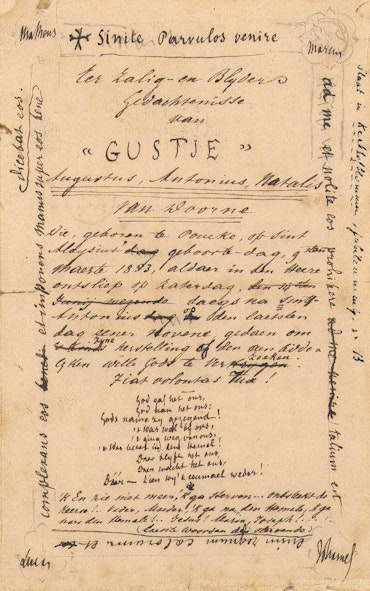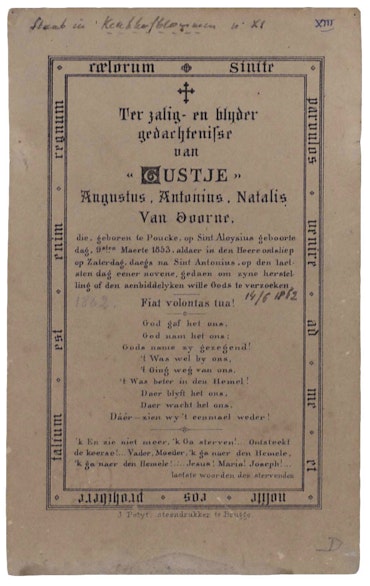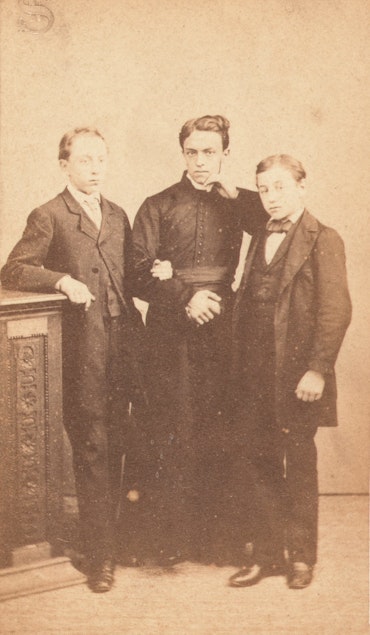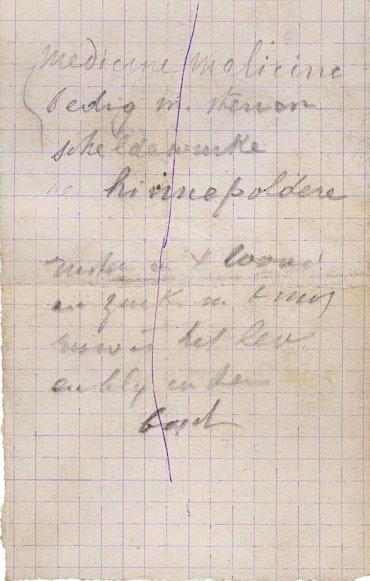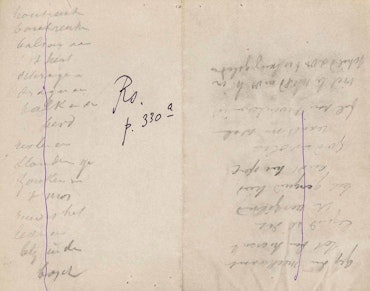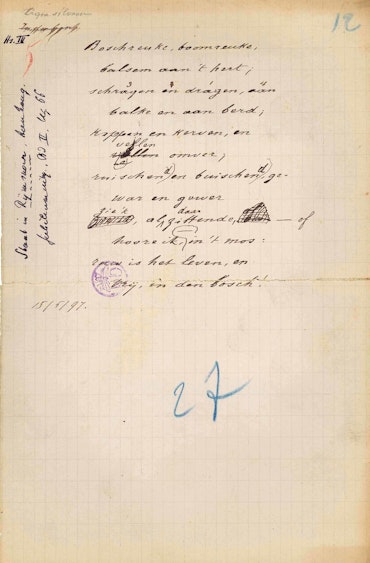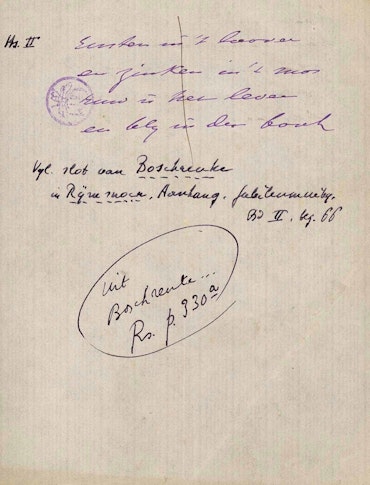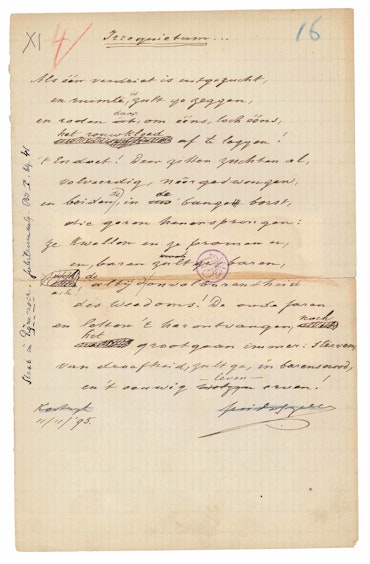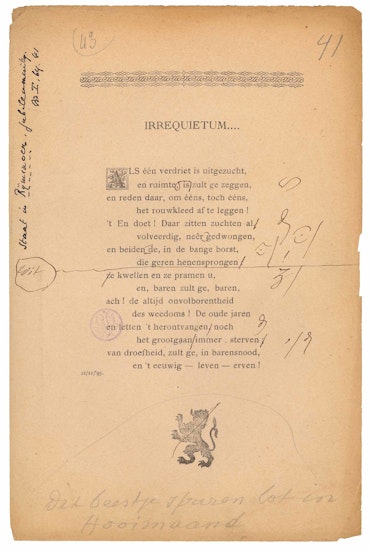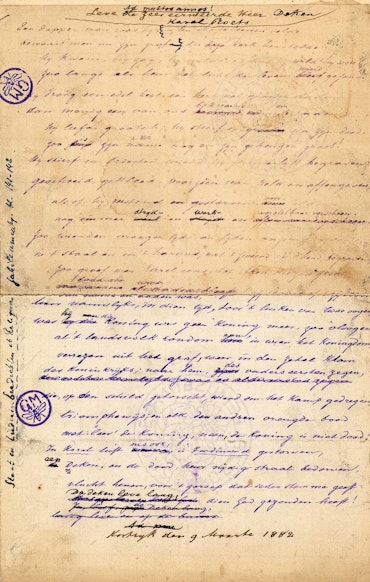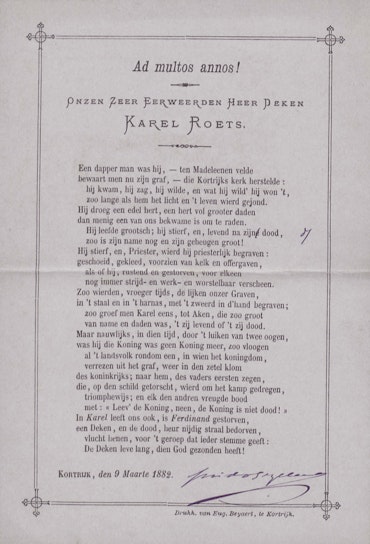
Poetry
Gezelle kept all kinds of poetry manuscripts: finished manuscripts, shreds, drafts, with or without corrections. He wrote them in notebooks, on advertisements or on festive stationery.
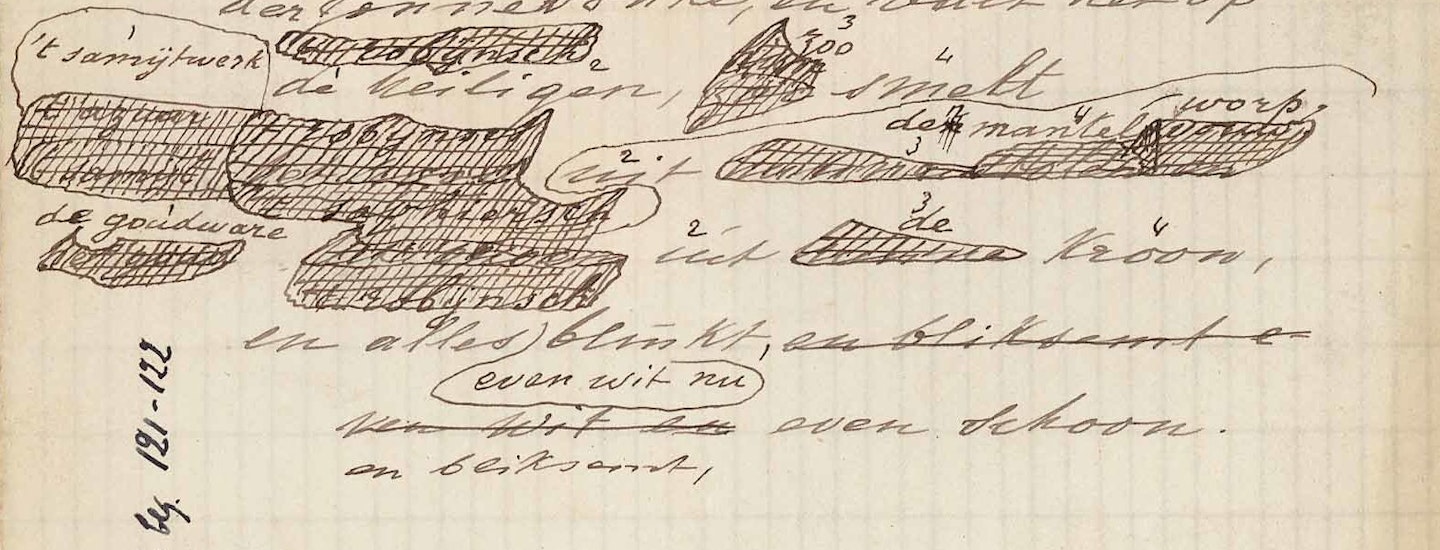
A Mountain of Papers
Thousands of draft-poems in Gezelle's handwriting were preserved. One of the reasons is that he used to cut up the autographs in order to scribble language notes on the backside. Researchers managed to piece the originals together afterwards. He also recycled letters and he used the paper to write poems on. Stijn Streuvels was confronted with an enormous mountain of papers after Gezelle's death.
“Uncle Guido had an oddity that is rather hard to explain, he could not destroy one single note, not one piece of writing - everything was preserved. When I was cleaning up the household effects in his room I could witness letters of all kinds, spread openly and disorderly upon his desk”
Gezelle's papers


Creative Process
The documents of the archives offer insight into how Gezelle used to work. We can see drafts, final versions, corrected proofs and special prints of poems such as decorated prayer cards, wedding announcements and festive prints for religious feasts.
Special Pieces

De keizerlijke kroon (The Imperial Crown)
Some autographs are richly decorated. Gezelle wrote this poem for the factory girls on festive stationery. It was to be read aloud on a special occasion in Courtrai.

God gaf het ons (God Gave it to Us)
Gezelle wrote this funeral poem for Augustus Van Doorne, the deceased brother of Hendrik Van Doorne, one of his students. See how he also made the text design for the prayer card.

Diary with English Poem
Gezelle wrote the poem O Holy Pathmos in a diary. He had it with him when he died.
Ligna silvarum. Boschreuke, boomreuke, (The smell of Forest, The Smell of Trees)
Different versions of one poem show the creation process. Discover the different stages of this poem.
o Vader van de weezen (o Father of the Orphans)
You can see that Gezelle wrote each stanza on a separate piece of paper, a process he regularly used when creating poetry. Each stanza was written on the backside of an advertisement for wine.
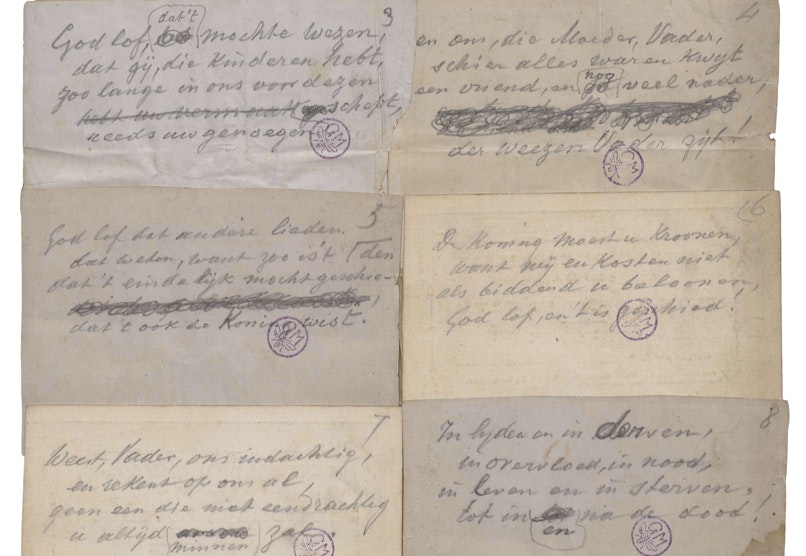
“Save This Little Beast Until July"
Gezelle kept both the manuscript and the proof of his poems. On the corrected proof of the poem Irrequietem for the poetry collection Rijmsnoer, he also wrote instructions: "Save This Little Beast Until July".
Een dapper man was hij (A Brave Man He Was)
Karel Roets, a fellow student of Gezelle was inaugurated as a dean. Gezelle wrote the poem Ad Multos Annos for the occasion. On March 9, 1882 the poem was read at an intimate party. You can see the handwriting and the print.
